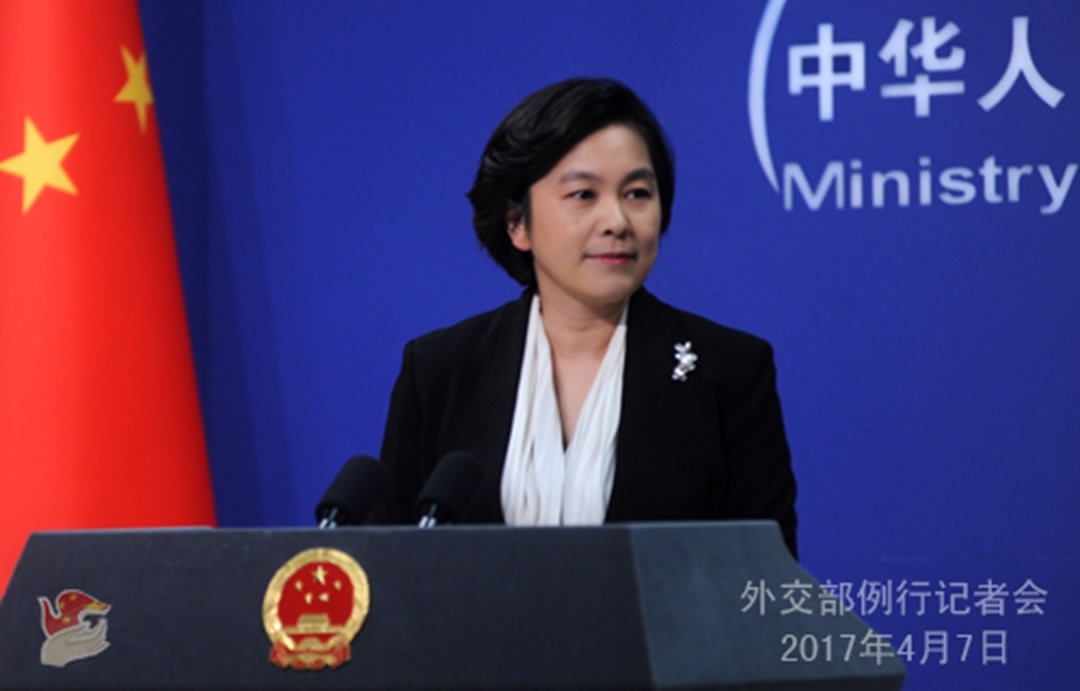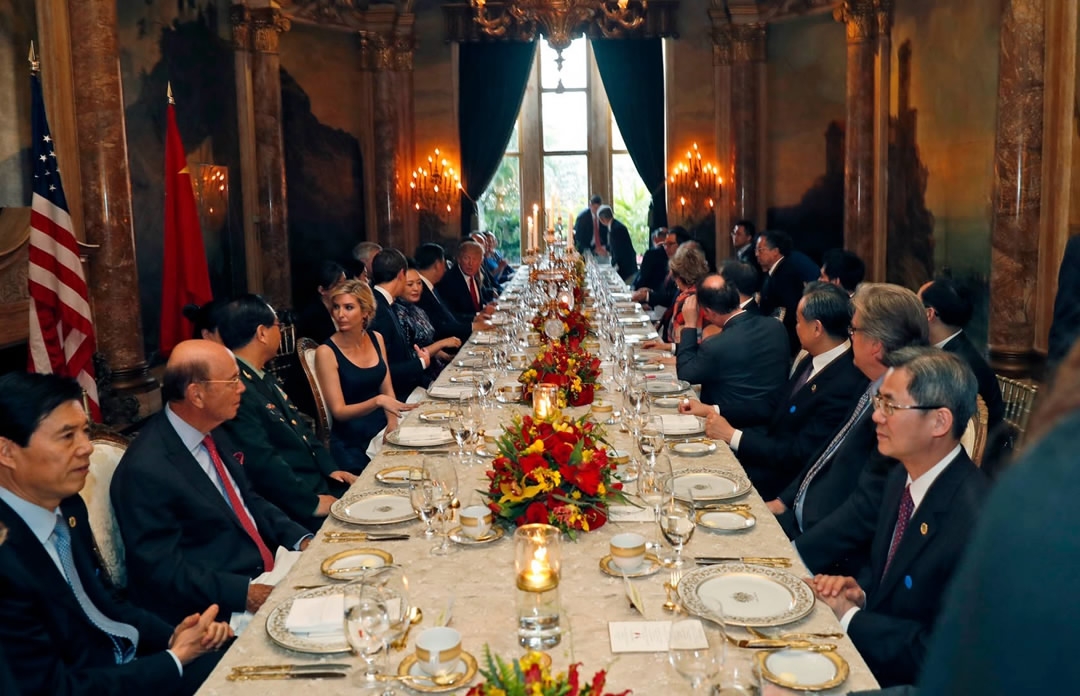By CGTN America
The nuclear ambitions of the Democratic People’s Republic of Korea (DPRK) and the US-China trade imbalance as well as other points of concern between US President Donald Trump and Chinese President Xi Jinping are being overshadowed by the US missile strikes on Syria.
Nonetheless, the two leaders met for a second day at Trump’s Mar-a-Lago estate as planned Friday. A bilateral meeting was planned for 10:30 a.m., followed by a 12:00 p.m. working lunch.
Trump said in a brief appearance before reporters that he has developed an “outstanding” relationship with President Xi and that he and President Xi made “tremendous progress” in their first face-to-face talks and that he believes “lots of very potentially bad problems will be going away.”
CGTN’s translation of President’s Xi’s comments during the photo op:
“This meeting between the heads of US and China is a unique and significant chance to promote our future bilateral ties. My delegation has received a warm welcome by President Trump, who has done very good arrangements. We have been talking for a long time. Through our communication, we’ve reached a lot of agreements. More importantly, we got to know each other better and have built trust, friendship and a working partnership between us. We will work towards promoting this friendly relationship, which will benefit China, the US and their peoples. We will also do our part in promoting peace and stability globally.”

Chinese Foreign Ministry Spokesperson Hua Chunying answers questions from reporters at a press briefing on April 7, 2017. /MOFA Photo
Chinese Foreign Ministry Spokesperson Hua Chunying did not say whether Trump told President Xi that he was planning to strike Syria before it was publicly announced.
The US said it launched the missile strikes shortly after a dinner between President Xi and Trump ended on Thursday night.
When asked at a news briefing if the Chinese side was given advance warning, Hua responded: “I have no information on that.”
She said that China “always opposes the use of force in international relations” when asked about China’s position on the US strike. “[China] maintains that disputes should be peacefully resolved through political and diplomatic means such as dialogue and consultation,” Hua said.
After arriving at Mar-a-Lago on Thursday, President Xi and his wife, Peng Liyuan, were greeted by Trump and US First Lady Melania. Before a conversation between President Xi and Trump, the two couples also enjoyed the singing of a traditional Chinese ballad and the recitation of Chinese ancient poems by Trump’s grandchildren.
President Xi told Trump he was ready to push forward China-US relations from a new starting point together with Trump. He said there are “a thousand reasons to make the China-US relationship work, and no reason to break it.”
President Xi also invited Trump to travel to China at an “early date” in 2017, and Trump accepted, Xinhua News Agency reported.
Trump said the US and China bear heavy responsibilities as major countries in the world, adding that he is full of expectations for the meeting and hopes to establish a sound working relationship with President Xi for the greater development of bilateral relations.
President Xi also called on the two counties to strengthen communication and coordination in such multilateral mechanisms as the UN, G20 and APEC, so as to jointly safeguard world peace, stability and prosperity.
Before Thursday night’s dinner, Trump said he and President Xi already had had a long discussion and had “developed a friendship,” and then joked, “I have gotten nothing, absolutely nothing.”

Chinese President Xi Jinping and US President Donald Trump are seated at the center, during a dinner at Mar-a-Lago, on April 6, 2017, in Palm Beach, Florida. /AP Photo
The White House has downplayed expectations for a breakthrough on issues like trade and tariffs, insisting that the 24-hour summit is mostly an introductory meeting for the two leaders. Within Trump’s administration, divisions remain over how to approach China.
Still, the DPRK was a top priority for Trump in the meetings with President Xi. The American president told reporters traveling with him to Florida that he thinks China will “want to be stepping up” in trying to deter the DPRK’s nuclear ambitions.
Stapleton Roy, a former US ambassador to China, said the meeting can deal with substantive issues and also help establish a personal relationship that will be helpful when differences emerge.
Stephen Orlins, president of the National Committee on US-China Relations, said potential agenda items include reaffirmation of the one-China policy, the Korean Peninsula situation and trade issues.
The US needs to cooperate by not closing the US market from global trade, and Trump’s aim to rebuild US infrastructure is an area where China could help, Orlins said.
Stanley Roth, former US assistant secretary of state for East Asia and the Pacific, said: “My experience is that the first visits tend to be much more genteel. They’ll try to build the relationship between the two leaders.”
While Trump would not say what he wants China to do specifically, he suggested there was a link between “terrible” trade agreements the US has made with China and Pyongyang’s provocations. He said the two issues “really do mix.”
Trump has said the US will act alone if China doesn’t exert more pressure on the DPRK. The missile strikes on Syria bring more weight to that statement.
Both as a candidate and president, Trump has taken an aggressive posture toward China, labeling Beijing a “tremendous problem” and arguing that lopsided trade deals with China shortchange American businesses and workers. Last week, the president predicted in a tweet that his meeting with President Xi would be “very difficult.”
He also signed a pair of executive orders last week, which focused on reducing the US trade deficit, an apparent shot at China, which accounted for the vast bulk — 347 billion US dollars— of last year’s 502 billion US dollars trade deficit.
12427km










